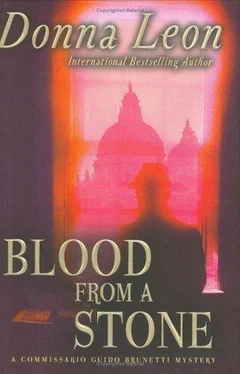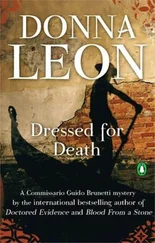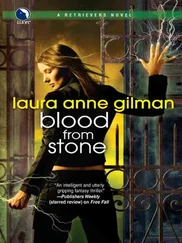Donna Leon - Blood from a stone
Здесь есть возможность читать онлайн «Donna Leon - Blood from a stone» весь текст электронной книги совершенно бесплатно (целиком полную версию без сокращений). В некоторых случаях можно слушать аудио, скачать через торрент в формате fb2 и присутствует краткое содержание. Год выпуска: 2005, Жанр: Детектив, на русском языке. Описание произведения, (предисловие) а так же отзывы посетителей доступны на портале библиотеки ЛибКат.
- Название:Blood from a stone
- Автор:
- Жанр:
- Год:2005
- ISBN:нет данных
- Рейтинг книги:4 / 5. Голосов: 1
-
Избранное:Добавить в избранное
- Отзывы:
-
Ваша оценка:
- 80
- 1
- 2
- 3
- 4
- 5
Blood from a stone: краткое содержание, описание и аннотация
Предлагаем к чтению аннотацию, описание, краткое содержание или предисловие (зависит от того, что написал сам автор книги «Blood from a stone»). Если вы не нашли необходимую информацию о книге — напишите в комментариях, мы постараемся отыскать её.
Blood from a stone — читать онлайн бесплатно полную книгу (весь текст) целиком
Ниже представлен текст книги, разбитый по страницам. Система сохранения места последней прочитанной страницы, позволяет с удобством читать онлайн бесплатно книгу «Blood from a stone», без необходимости каждый раз заново искать на чём Вы остановились. Поставьте закладку, и сможете в любой момент перейти на страницу, на которой закончили чтение.
Интервал:
Закладка:
‘Yes,’ Paola said.
Chiara stood, quietly pushed her chair back under the table, and left the room. Raffi, who was familiar with his mother’s sense of humour, turned to her, waiting for the one-line remark he was sure would come. Instead, Paola got to her feet and picked up her daughter’s plate. She placed it in the sink, then went into the living room.
Raffi finished his radicchio, resigned himself to the fact that there would be no dessert that night, set his knife and fork neatly parallel on his plate, then took it over to the sink. He went back to his room.
Brunetti returned to this scene half an hour later. Comforted by the scents that filled the entire apartment, he was eager to see his family and talk of things other than violent death. He went into the kitchen and, instead of the family he expected to see eating dessert and eagerly awaiting his return, he found an all-but empty table and dishes stacked in the sink.
He went searching for them in the living room, wondering if there was something interesting on television, impossible as he knew that to be. He found only Paola, lying on the sofa, reading. She looked up when he came in and said, ‘Would you like to eat something, Guido?’
‘Yes, I think I would. But first I’d like a glass of wine and for you to tell me what’s wrong.’ He went back into the kitchen and got a bottle of Falconera and two glasses. He opened the wine, dismissed all the nonsense about leaving it unpoured long enough to breathe, and went back into the living room. He sat down near her feet, set the glasses on the table in front of the sofa, and poured out two large glasses. He leaned towards her and handed her one, then used the same hand to take her left foot. ‘Your feet are cold,’ he said, then pulled a balding old afghan down from the back of the sofa and covered them.
He took a sip large enough to complement the size of the glass and said, ‘All right, what is it?’
‘Chiara complained that you were late, and when I told her it was because someone had been killed, she said that it was only a vu cumprà .’ She kept her voice dispassionate, reportorial.
‘Only?’ he repeated.
‘Only.’
Brunetti took another drink of wine, rested his head on the back of the sofa, and swirled the wine around in his mouth. ‘Hummm,’ he finally said. ‘Not nice at all, is it?’
Though he couldn’t see Paola, he felt the sofa move as she nodded.
‘You think she heard it in school?’ he asked.
‘Where else? She’s too young to be a member of the Lega.’
‘So is it something her friends bring in from their parents, or is it something the teachers give them?’ he asked.
‘It could be either, I’m afraid,’ she said. ‘Or both.’
‘I suppose so,’ Brunetti agreed. ‘What did you do?’
‘I told her what she said was disgusting and that I’m ashamed she’s my daughter.’
He turned, smiled, held his glass up and saluted her. ‘Always prone to moderation, aren’t you?’
‘What was I supposed to do, send her to some sort of sensitivity training class or give her a sermon on the brotherhood of man?’ Brunetti heard her rage and disgust rekindle as she went on, ‘It is disgusting, and I am ashamed of her.’
Brunetti was pleased she did not bother to assert that their daughter had never heard such things in their home, that they were in no way responsible for this sort of distortion of mind. Heaven alone knew what was suggested by the conversations he and Paola had in front of the children; no one knew what they could have inferred over all those years. He liked to think he was a moderate person, brought up, like most Italians, without racial prejudice, but he was honest enough to accept that this belief was probably yet another national myth. It is easy to grow up without racial prejudice in a society in which there is only one race.
His father hated Russians, and Brunetti had always thought he did so with good reason, if three years as a prisoner of war is a good reason. For his own part, he had an instinctive distrust of southerners, though it was a feeling that caused him no little discomfort. He was far less troubled by his own distrust of Albanians and of Slavs.
But African blacks? That was an almost entirely unfamiliar category for him, and since he was completely ignorant about them, he doubted that he could have infected his children with his prejudices. More likely it was something, like head lice, that Chiara had picked up in school.
‘Do we sit here and castigate ourselves as negligent parents and then punish ourselves for that by not eating dinner?’ he finally asked.
‘I suppose we could,’ she said, her remark entirely devoid of humour.
‘I don’t like the idea of that,’ he said. ‘Either one or the other.’
‘All right,’ she finally said. ‘I’ve been sitting alone in here a long time, which takes care of the castigating, so I suppose we can at least eat dinner in peace.’
‘Good,’ he said, finishing his wine and leaning forward to take the bottle.
As they ate, some tacit agreement having been made not to discuss Chiara’s remark further that evening, Brunetti told her what was said to have happened in Campo Santo Stefano: two men, though no one seemed to have paid much attention to them, appeared out of the darkness and slipped back into it after shooting the African at least five times. It was an execution, not a murder, and certainly there was nothing random about it. ‘He didn’t have a chance, poor devil,’ Brunetti said.
‘Who would want to do something like that? And to a vu cumprà ?’ Paola asked. ‘And why?’
These were the questions that had accompanied Brunetti on his walk home. ‘Seems to me that it’s either because of something he did after he got here or something he did before,’ Brunetti said, though he knew this was merely to state the obvious.
‘That doesn’t help much, does it?’ Paola asked, but it was an observation, not a criticism.
‘No, but it’s a place to begin to divide the things we might be looking for.’
Paola, always comfortable when presented with an exercise in logic, said, ‘Begin by examining what you know about him. Which is?’
‘Absolutely nothing,’ Brunetti answered.
‘That’s not true.’
‘What?’
‘You know he was a black African, and you know he was working as a vu cumprà , or whatever we’re supposed to call them now.’
‘ Venditore ambulante or extracomunitario ,’ Brunetti supplied.
‘That’s about as helpful as “ Operatore ecologico” ,’ she answered.
‘Huh?’
‘Garbage man,’ Paola translated. She got to her feet and left the room. When she came back, she had a bottle of grappa and two small glasses. As she poured, she said, ‘So let’s just call him a vu cumprà to save time and confusion, all right?’
Brunetti thanked her for the grappa with a nod, took a sip, and asked, ‘What else do you think we know?’
‘You know that none of the others stayed to try to help him or to help the police in any way.’
‘I’d guess they saw he was dead when he fell.’
‘Would it have been that obvious?’
‘I think so, yes.’
‘And so you know it was an execution,’ Paola went on, ‘not the result of a fight or an argument that provoked it suddenly. Someone wanted him dead and either sent people to do it or came and did it himself.’
‘I’d say he sent people,’ Brunetti offered.
‘How can you tell?’
‘It has that feel about it, the work of professionals. They appeared out of nowhere, executed him, and disappeared.’
‘So what does that tell you about them?’
‘That they’re familiar with the city.’
Читать дальшеИнтервал:
Закладка:
Похожие книги на «Blood from a stone»
Представляем Вашему вниманию похожие книги на «Blood from a stone» списком для выбора. Мы отобрали схожую по названию и смыслу литературу в надежде предоставить читателям больше вариантов отыскать новые, интересные, ещё непрочитанные произведения.
Обсуждение, отзывы о книге «Blood from a stone» и просто собственные мнения читателей. Оставьте ваши комментарии, напишите, что Вы думаете о произведении, его смысле или главных героях. Укажите что конкретно понравилось, а что нет, и почему Вы так считаете.












